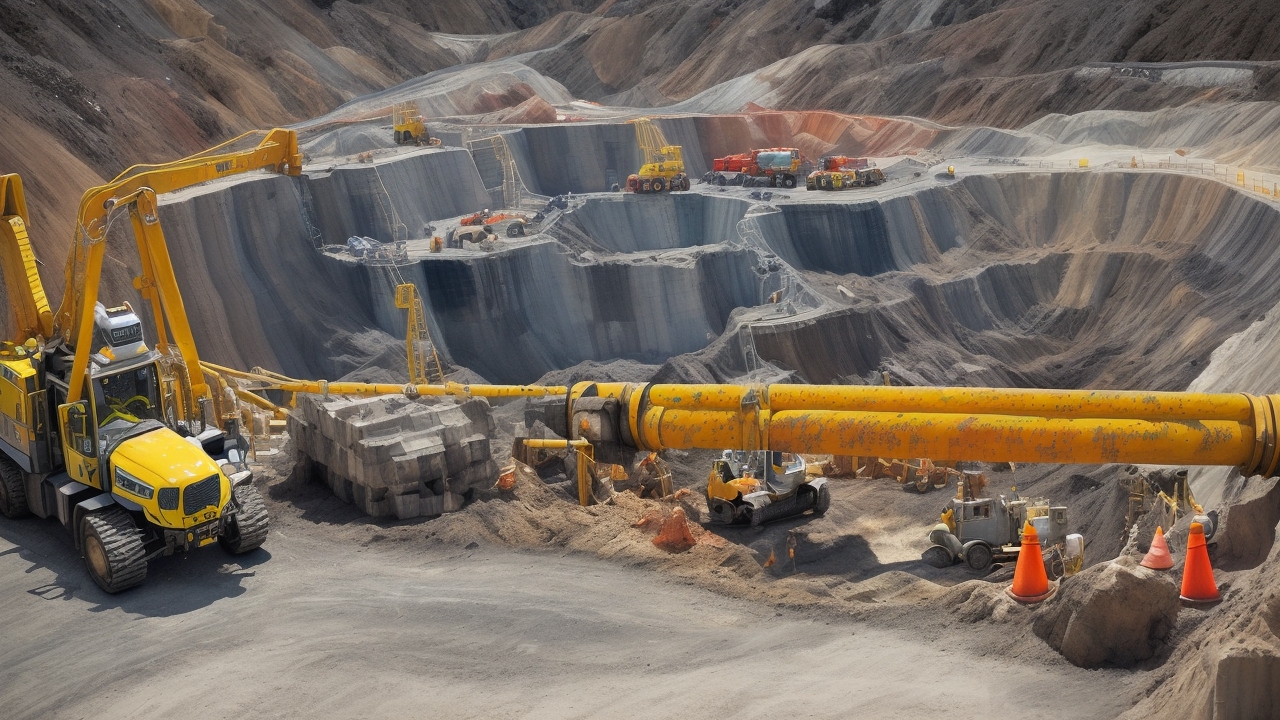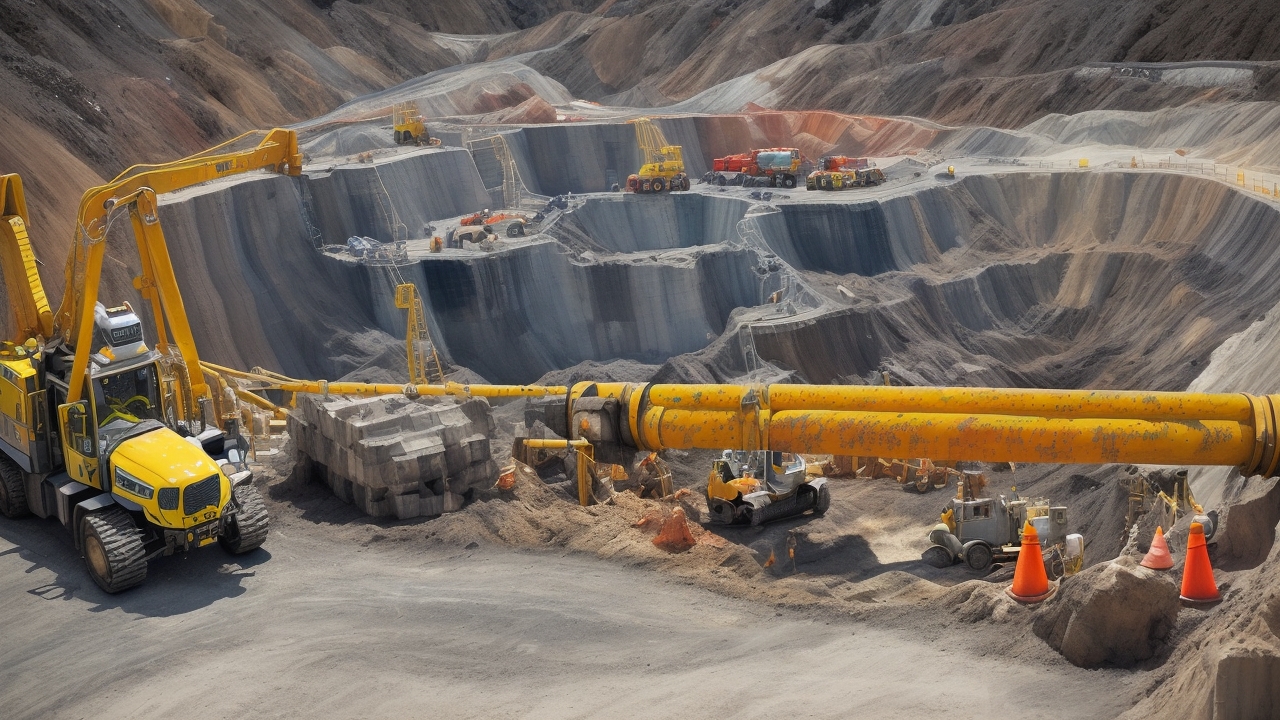blaster jobs apply now online
This blog provides an in-depth overview of blaster jobs, careers that involve the handling of explosives for tasks in industries such as mining, construction, and demolition. It explores crucial aspects such as the required qualifications, including federal and state licenses, and the various types of blaster jobs available, from mining and construction to special effects and tactical roles in military and law enforcement. The emphasis on safety protocols is highlighted, given the inherent risks associated with the profession. The blog also discusses the industry’s steady outlook, driven by ongoing projects and technological advancements, and offers insights into training programs and expected compensation, making it a valuable resource for those interested in pursuing blaster jobs.
# Exploring blaster jobs: comprehensive guide to career opportunities **Table of Contents** – [What are blaster jobs](#what-are-blaster-jobs) – [Required qualifications](#required-qualifications) – [Types of blaster jobs](#types-of-blaster-jobs) – [Safety protocols](#safety-protocols) – [Industry outlook](#industry-outlook) – [Training programs](#training-programs) – [Compensation expectations](#compensation-expectations) – [People ask about blaster jobs](#people-ask) ## What are blaster jobs {#what-are-blaster-jobs} Blaster jobs involve controlled explosives work across various industries including mining, construction, and demolition. These professionals handle explosive materials to break or remove rock, concrete and other dense materials. The role requires extensive training, certification and adherence to strict safety protocols. According to the essential skills guide for blaster jobs, these positions demand both technical expertise and careful attention to detail. Blaster jobs combine engineering principles with hands-on field experience. ## Required qualifications {#required-qualifications} To work in blaster jobs, specific qualifications and certifications are mandatory: – Federal and state blasting license – Safety training certification – Minimum years of apprenticeship experience – Clean criminal record – Physical fitness requirements – Knowledge of relevant regulations ## Types of blaster jobs {#types-of-blaster-jobs} The blasting industry offers various specialized roles: Mining blasters work underground and in open pit mines to extract minerals and create tunnels. Construction blasters prepare sites for new buildings and infrastructure. Demolition specialists bring down existing structures safely. Special effects blasters work in film and entertainment, creating controlled explosions for movies and shows. Military and law enforcement roles focus on specialized tactical applications. ## Safety protocols {#safety-protocols} Safety is paramount in blaster jobs. Key protocols include: Detailed blast plans must be created and approved before any work begins. Proper storage and handling of explosives follows strict regulations. Warning systems and evacuation procedures protect workers and the public. Regular equipment inspections and maintenance are required. Ongoing safety training keeps skills current. Documentation and reporting track all blasting activities. ## Industry outlook {#industry-outlook} The employment outlook for blaster jobs remains steady, driven by ongoing construction, mining and infrastructure projects. Industry analysis shows growing demand in developing regions. Technological advances are changing how blasting work is performed. New precision techniques and digital modeling improve efficiency while maintaining safety. ## Training programs {#training-programs} Formal training combines classroom instruction with supervised field experience. Programs cover: – Explosives characteristics and applications – Safety procedures and emergency response – Equipment operation and maintenance – Relevant laws and regulations – Environmental protection measures – Documentation requirements ## Compensation expectations {#compensation-expectations} Blaster jobs offer competitive compensation reflecting the skills and risks involved. Entry-level positions start at $45,000-65,000 annually. Experienced professionals can earn $80,000-120,000+. Benefits typically include health insurance, retirement plans, and paid time off. Hazard pay may apply for certain assignments. advancement opportunities exist into management roles. ## People ask about blaster jobs {#people-ask} **What qualifications do i need for blaster jobs?** Blaster jobs require proper certification, apprenticeship experience, and clean background. Most positions need state/federal licenses plus safety training. Physical fitness and attention to detail are essential. **How much do blaster jobs typically pay?** Entry-level blaster jobs start at $45,000-65,000 annually. Experienced professionals earn $80,000-120,000+. Pay varies by location, industry, and role. Benefits packages typically include health insurance and retirement plans. **Are blaster jobs dangerous?** While blaster jobs involve inherent risks, strict safety protocols minimize dangers. Proper training, planning, and procedures keep workers safe. Personal protective equipment and warning systems are mandatory. Regular inspections maintain safety standards.

# Exploring blaster jobs: comprehensive guide to career opportunities **Table of Contents** – [What are blaster jobs](#what-are-blaster-jobs) – [Required qualifications](#required-qualifications) – [Types of blaster jobs](#types-of-blaster-jobs) – [Safety protocols](#safety-protocols) – [Industry outlook](#industry-outlook) – [Training programs](#training-programs) – [Compensation expectations](#compensation-expectations) – [People ask about blaster jobs](#people-ask) ## What are blaster jobs {#what-are-blaster-jobs} Blaster jobs involve controlled explosives work across various industries including mining, construction, and demolition. These professionals handle explosive materials to break or remove rock, concrete and other dense materials. The role requires extensive training, certification and adherence to strict safety protocols. According to the essential skills guide for blaster jobs, these positions demand both technical expertise and careful attention to detail. Blaster jobs combine engineering principles with hands-on field experience. ## Required qualifications {#required-qualifications} To work in blaster jobs, specific qualifications and certifications are mandatory: – Federal and state blasting license – Safety training certification – Minimum years of apprenticeship experience – Clean criminal record – Physical fitness requirements – Knowledge of relevant regulations ## Types of blaster jobs {#types-of-blaster-jobs} The blasting industry offers various specialized roles: Mining blasters work underground and in open pit mines to extract minerals and create tunnels. Construction blasters prepare sites for new buildings and infrastructure. Demolition specialists bring down existing structures safely. Special effects blasters work in film and entertainment, creating controlled explosions for movies and shows. Military and law enforcement roles focus on specialized tactical applications. ## Safety protocols {#safety-protocols} Safety is paramount in blaster jobs. Key protocols include: Detailed blast plans must be created and approved before any work begins. Proper storage and handling of explosives follows strict regulations. Warning systems and evacuation procedures protect workers and the public. Regular equipment inspections and maintenance are required. Ongoing safety training keeps skills current. Documentation and reporting track all blasting activities. ## Industry outlook {#industry-outlook} The employment outlook for blaster jobs remains steady, driven by ongoing construction, mining and infrastructure projects. Industry analysis shows growing demand in developing regions. Technological advances are changing how blasting work is performed. New precision techniques and digital modeling improve efficiency while maintaining safety. ## Training programs {#training-programs} Formal training combines classroom instruction with supervised field experience. Programs cover: – Explosives characteristics and applications – Safety procedures and emergency response – Equipment operation and maintenance – Relevant laws and regulations – Environmental protection measures – Documentation requirements ## Compensation expectations {#compensation-expectations} Blaster jobs offer competitive compensation reflecting the skills and risks involved. Entry-level positions start at $45,000-65,000 annually. Experienced professionals can earn $80,000-120,000+. Benefits typically include health insurance, retirement plans, and paid time off. Hazard pay may apply for certain assignments. advancement opportunities exist into management roles. ## People ask about blaster jobs {#people-ask} **What qualifications do i need for blaster jobs?** Blaster jobs require proper certification, apprenticeship experience, and clean background. Most positions need state/federal licenses plus safety training. Physical fitness and attention to detail are essential. **How much do blaster jobs typically pay?** Entry-level blaster jobs start at $45,000-65,000 annually. Experienced professionals earn $80,000-120,000+. Pay varies by location, industry, and role. Benefits packages typically include health insurance and retirement plans. **Are blaster jobs dangerous?** While blaster jobs involve inherent risks, strict safety protocols minimize dangers. Proper training, planning, and procedures keep workers safe. Personal protective equipment and warning systems are mandatory. Regular inspections maintain safety standards.


